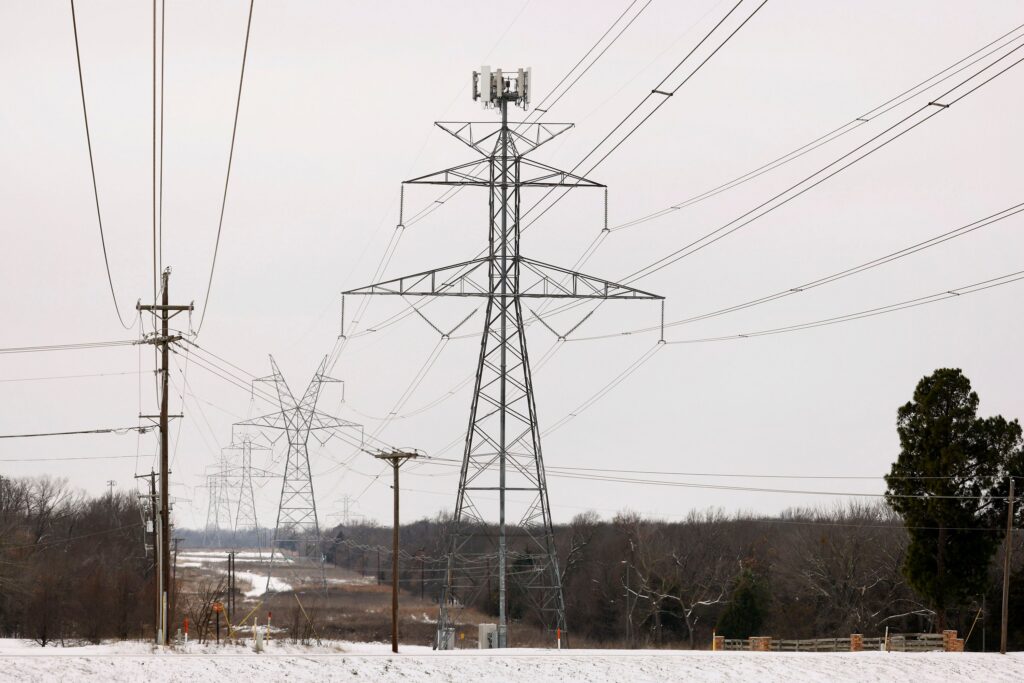Section 8 woes: Colorado Springs residents frustrated with Housing Authority over eviction, voucher delays
Some Colorado Springs residents claim the government system that provides federally subsidized housing vouchers to help people pay their rent and prevent homelessness instead is causing them to become homeless.
And early sunsetting of COVID-era emergency housing vouchers due to the $5 billion pot running out of money is resulting in additional grievances from some low-income families that receive housing assistance.
“Something that should have taken one to two days in my case has taken more than 30 days, and it’s been debilitating for my family to be homeless and sleep in our car and rundown motel rooms with roaches and mold while we wait,” said Kaniya Johnson. “That’s exactly why we’re on this program, to avoid these kinds of scenarios.”
The 34-year-old mother of three special-needs teenagers moved her family from Texas to Colorado Springs at the end of May, in search of a better life. But it’s been a rocky start in the Pikes Peak region.
She initiated the process in early April to transfer her existing voucher from there to here and was upset to find out when the family arrived that everything was still not in order.
“I don’t think the Colorado Springs Housing Authority understands the implications that delaying our voucher has caused my family, and it doesn’t seem like they care or have any sense of urgency to complete the process,” Johnson said.
Her complaint joins others — a group of residents at a local public housing apartment complex rallied for months to save one tenant from what they believe is wrongful eviction over a neighbor dispute at Southview Plaza Apartments, a 31-unit building near Prospect Lake.
Despite objections from about 25 supporters and a restraining order against her being vacated, Pamela Langford lost her handicapped-accessible unit at 4 p.m. Thursday. As of 4:01 p.m. that day, the 51-year-old, who has multiple sclerosis, became a member of the homeless population for the first time.
“There’s no proof I did anything wrong because I didn’t do anything wrong,” she said, while taking a break from packing boxes after four years of living in the apartment.
Other clients are worried their housing could be in jeopardy, as the U.S. Department of Housing and Urban Development announced in March that it would no longer provide funding for the 2021 Emergency Housing Voucher program. It was originally supposed to extend to 2035.
The remaining emergency HUD funding will carry the existing 69 vouchers allocated by the Colorado Springs Housing Authority through the first quarter of 2026, said Deputy Director Paul T. Spencer.
The situation won’t be as grim as initially thought, though. In a June 20 letter to public housing agencies and directors, HUD officials said options to convert emergency vouchers to traditional “housing choice” vouchers will be available to “minimize disruptions,” so “families do not experience a loss or gap in housing assistance and can remain in their assisted units.”
That would be “life-saving,” said Kristy Milligan, CEO of Westside CARES, an organization that provides various services, including rent assistance, to low-income and homeless people.
“Those of us in housing navigation always hoped that these vouchers would be extended or converted, as people tend to get more vulnerable as they age and living costs increase,” she said.
But a Colorado Springs resident named Elizabeth said she received a letter in the mail last week saying she would lose her emergency voucher. And she’s already having to decide between keeping car insurance and buying dog food or paying rent and other household bills. Without the housing subsidy, Elizabeth, who asked that her last name not be used for privacy reasons, says she’ll be on the streets, as well.
“I’m scared again, and I don’t know what to do,” she said. “I get caught up, and then I get behind again. I’ll do whatever I can to keep my apartment.”
The Colorado Springs Housing Authority, a quasi-governmental yet independent agency whose seven-member board is appointed by the mayor, abides by HUD regulations and follows a five-step eviction process that includes clearance from a third-party legal firm, the opportunity for mediation and court approval, Spencer said in response to concerns from Langford and Johnson.
“It’s a lease like any other, except we have to follow HUD guidelines for public housing, which the tenant must follow because they’re on a subsidized plan that we’re required to review,” he said.
Spencer acknowledges that wait times for assistance can be long, and in cases such as Johnson’s, he said a move or “port-in” of an existing voucher is complex because it involves aligning the local office, the other city’s housing authority and the recipient.
“There’s going to be people who want a more timely response, and we understand that,” Spencer said. “Ports are complicated; it’s not like you can have a voucher in hand and say, ‘I just moved here, and I need a unit.’”
Colorado Springs Housing Authority Executive Director Chad Wright said he couldn’t discuss data related to individuals. “But needed information and compliance requirements have been made known to (Johnson), as she has requested additional assistance.”
Johnson said Wright was referring to a technical issue with the name of one of her 14-year-old twins unintentionally missing from part of the application, which required her to fill out another form. She said correcting the omission took more than a week. “They never returned any of my calls; I’d been the one to make all of the contact, and they kept telling me there were no problems.”
HUD does not track real-time portability processing times for individuals, according to a HUD spokesperson who responded to questions via email. Port-in processing timelines vary based on factors that include the capacity of the receiving housing authority, available funding and the completeness of incoming documentation, the spokesperson said.
Johnson believes the program is flawed and said she would like to see more compassion and less regiment.
“We’ve done everything we were supposed to do; we’ve been waiting on someone to do their job, and that’s not fair to us,” she said. “Even though the program is supposed to help us not have housing insecurity, it’s making us homeless.”
In Langford’s case, she claims her neighbor has “done nothing but attack and try to destroy” her by constantly complaining about her service dog, making false allegations against her and videotaping her and visitors.
“I’m not doing anything to break the lease, and yet I’m getting evicted and she’s not,” Langford said. “The housing authority gives preferential treatment, has inconsistent policies, is not transparent and isn’t being accountable.”
She also alleges she’s being retaliated against for helping lead a tenants’ rights group for public housing. And some Southview Plaza residents speak of building security concerns they say haven’t been properly addressed.
It’s difficult to determine if higher ups have received complaints about the Colorado Springs Housing Authority.
The Colorado Department of Local Affairs’ Division of Housing does not have oversight regarding inquiries about public housing authorities, said spokesperson Shannon Gray.
“The Colorado Springs Housing Authority’s Housing Choice Voucher (also known as Section 8) program operates independently of the Colorado Department of Local Affairs,” she said.
HUD’s regional office also could not speak about possible complaints because the records often contain personally identifiable information and sensitive tenant details, thus HUD is unable to release them publicly, a spokesperson said.
The city of Colorado Springs’ Housing and Homelessness Response Department does not control the local housing authority and also would not comment on the agency.
Milligan of Westside CARES said while federal funding for organizations and agencies that work with vulnerable populations is uncertain and tenuous, she believes the Colorado Springs Housing Authority has some “rock stars” who “help bring people home” through the programs it administers.
“Contrary to what many people believe, it is extremely difficult to first, be selected for housing support, and second, to complete the gauntlet of bureaucratic processes to fruition of voucher into housing,” Milligan said. “There is a vast amount of paperwork and process that must be completed prior to a voucher even being awarded. And then the tenant must find a landlord that is willing to accept their voucher, complete more paperwork and pass inspection.
“We have seen this process take upward of nine to 12 months for people who have been lucky enough to be selected at random from the Housing Choice Voucher lottery.”
The “pause” on accepting new applications for vouchers for the Housing Choice Voucher program that the Colorado Springs Housing Authority enacted in February remains in place, Spencer said. It’s unknown when agencies will be able to reinstate issuance, he said. More clarity should come when Congress passes a funding bill for 2026, Spencer said, which is expected to happen by October.
To maintain its normal yearly schedule and prepare for when processing applications resumes, the local authority will open Section 8 pre-application sign-up online at noon at csha.us on Tuesday, for two days only, until noon on Thursday.
People accepted will be randomly assigned a lottery number for selection when there are available vouchers.
The wait list usually draws about 2,000 people, Spencer said. Currently, more than 1,700 people receive vouchers from the Colorado Springs Housing Authority.
Colorado Politics Must-Reads:
















